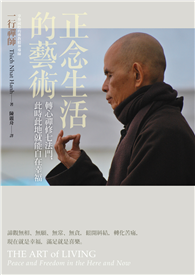Breaking with strictly historical or textual perspectives, this book explores Jewish philosophy as philosophy. Often regarded as too technical for Judaic studies and too religious for philosophy departments, Jewish philosophy has had an ambiguous position in the academy. These provocative essays propose new models for the study of Jewish philosophy that embrace wider intellectual arenas--including linguistics, poetics, aesthetics, and visual culture--as a path toward understanding the particular philosophic concerns of Judaism. As they reread classic Jewish texts, the essays articulate a new set of questions and demonstrate the vitality and originality of Jewish philosophy.
| FindBook |
有 1 項符合
New Directions in Jewish Philosophy的圖書 |
 |
New Directions in Jewish Philosophy 作者:Hughes 出版社:Indiana University Press 出版日期:2009-12-22 語言:英文 規格:平裝 / 376頁 / 23.4 x 15.5 x 2.8 cm / 普通級 |
| 圖書館借閱 |
| 國家圖書館 | 全國圖書書目資訊網 | 國立公共資訊圖書館 | 電子書服務平台 | MetaCat 跨館整合查詢 |
| 臺北市立圖書館 | 新北市立圖書館 | 基隆市公共圖書館 | 桃園市立圖書館 | 新竹縣公共圖書館 |
| 苗栗縣立圖書館 | 臺中市立圖書館 | 彰化縣公共圖書館 | 南投縣文化局 | 雲林縣公共圖書館 |
| 嘉義縣圖書館 | 臺南市立圖書館 | 高雄市立圖書館 | 屏東縣公共圖書館 | 宜蘭縣公共圖書館 |
| 花蓮縣文化局 | 臺東縣文化處 |
|
|
圖書介紹 - 資料來源:博客來 評分:
圖書名稱:New Directions in Jewish Philosophy
內容簡介
作者簡介
Aaron W. Hughes is Associate Professor of History and the Gordon and Gretchen Gross Professor in the Institute of Jewish Thought and Heritage at the University at Buffalo, SUNY. He is author of The Texture of the Divine (IUP, 2004) and The Art of Dialogue in Jewish Philosophy (IUP, 2008).
Elliot R. Wolfson is Abraham Lieberman Professor of Hebrew and Judaic Studies at New York University. He is author of Through a Speculum That Shines: Vision and Imagination in Medieval Jewish Mysticism and Language, Eros, Being: Kabbalistic Hermeneutics and Poetic Imagination.
|











